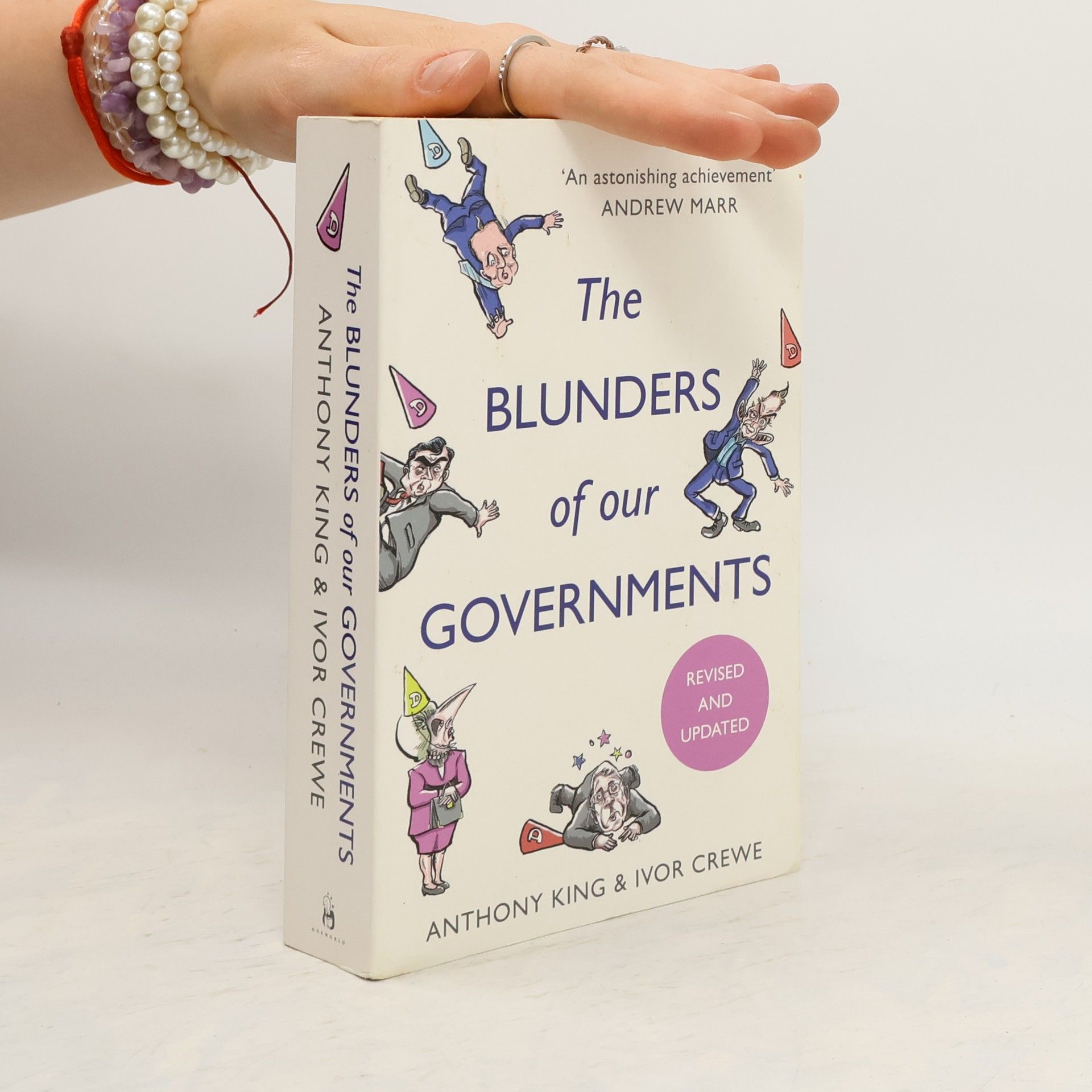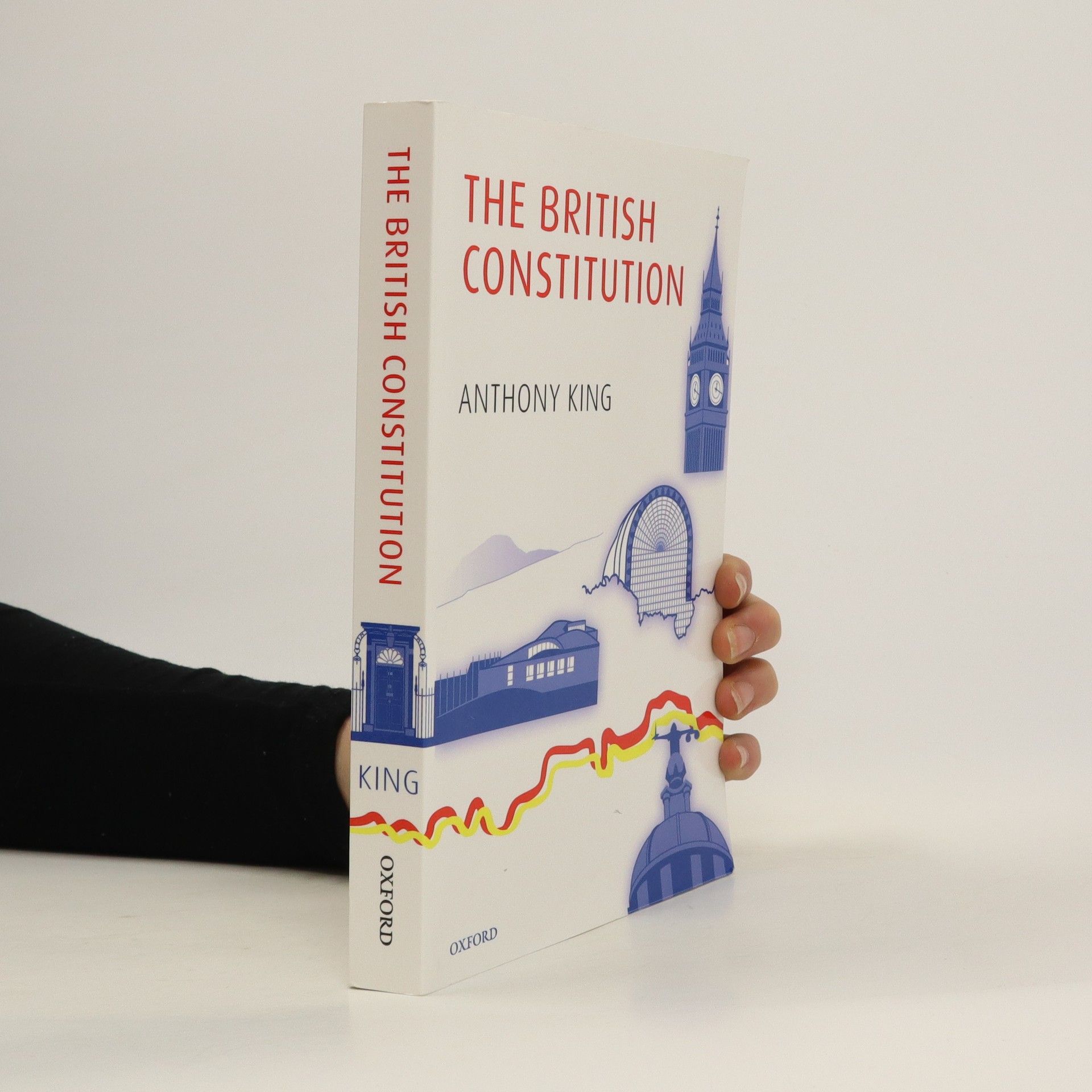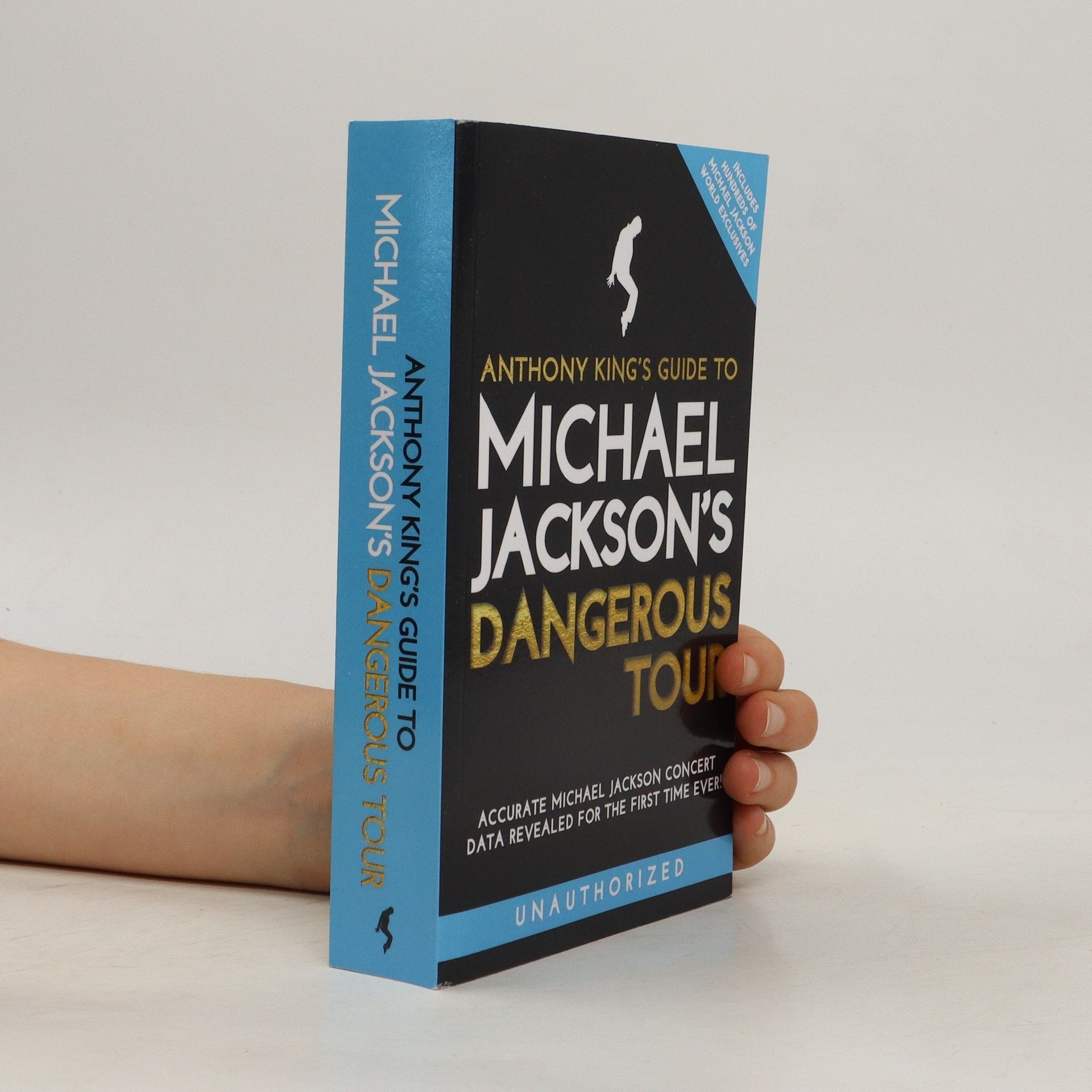Anthony King's Guide to Michael Jackson's History Tour is an in-depth analysis of every performance. It is a factually accurate account including dates, venue information, audience data and a whole lot more. In his show by show analysis, Anthony King takes you around the world, on tour with the King of Pop! He lets you into some never before revealed facts about the show, exploring show trivia, the choreography and dancers, the band and music, set design, illusions and behind the scenes. Thoroughly researched and meticulous in detail this book contains hundreds of world exclusives!
Anthony King Livres
Anthony King était un distingué universitaire du gouvernement britannique dont les aperçus résonnaient fréquemment dans les médias. Il a partagé sa profonde compréhension de la politique et des processus électoraux par le biais de fréquentes émissions pour la BBC. Ses contributions écrites ont paru dans les principaux journaux britanniques, offrant des observations pointues sur le paysage politique.






The British Constitution
- 437pages
- 16 heures de lecture
Over the last two decades, warfare has migrated into cities. From Mosul to Mumbai, Aleppo to Marawi, the major military battles of our time have taken place in densely populated urban areas. Why has this happened? What are the defining characteristics and the military and political implications of urban warfare today? Leading sociologist Anthony King answers these critical questions through close analysis of recent urban battles and their historical antecedents. Exploring the changing typography and evolving tactics of the urban battlescape, he shows that whilst some methods used in urban battle are not new, operations in cities have become highly distinctive. Today, urban warfare has coalesced into gruelling micro-sieges, which extend from street level - and below - to the airspace high above the city - as combatants fight for individual buildings, streets, and districts. At the same time, digitalized social media and information networks have communicated these battles to global audiences across the urban archipelago, with these spectators often becoming active participants in the fight. A timely reminder of the costs and the horror of war and violence in cities, this book offers an invaluable interdisciplinary introduction to urban warfare in the new millennium for students of international security, urban studies, and military science.
'Taut, topical and tense' Adam HamdyA gripping crime thriller set in Yorkshire, perfect for fans of Peter Robinson and Ian Rankin.
The Blunders of Our Governments
- 512pages
- 18 heures de lecture
From the poll tax to ID cards, a groundbreaking look at three decades of outrageous political mishaps
The first in a gripping new crime thriller series set in Yorkshire, for fans of Ian Rankin and Joseph Knox. 'A striking debut' Peter Robinson 'The twisted big brother to Happy Valley' Michael Wood
The Vikings Were A Seafaring People From The Late Eighth To Early 11th Century Who Established A Name For Themselves As Traders, Explorers And Warriors. They Discovered The Americas Long Before Columbus And Could Be Found As Far East As The Distant Reaches Of Russia. While These People Are Often Attributed As Savages Raiding The More Civilized Nations For Treasure And Women, The Motives And Culture Of The Viking People Are Much More Diverse. In This Book, Find Out: Where The Vikings Come From, Their Invasions And Travels, How They Led Their Daily Lives, How And Why They Fought Other Peoples, Their Culture, Their Religious Beliefs The Norse Mythology, And Plenty More! They Could Be Educated In Religion And Weaponry, Own And Inherit Property, Keep Their Finances Separate From Their Husbands' Assets, Be A Force In The Military And In Politics, Seek Judgment For Crimes Against Them, And Be Punished Equally To Men For Equal Crimes. There Was Some Equality For Them, Maybe Even More Than Women Over A Thousand Years Later. If You Want To Try To Understand How A Celtic Thought This Book Is For You!
Anthony King's Guide to Michael Jackson's Dangerous Tour is an analysis of every performance, with factually accurate show dates, venue information, audience data and more... for the first time ever! The Dangerous tour is finally revealed, in depth and show by show, taking you on tour with the King of Pop, around the world! This detailed and highly researched tour guide delves deep into the show trivia, the choreography and dancers, the band and music, set design, illusions, behind the scenes and much more. It is the most factually accurate look at Michael Jackson live in concert ever written... Filled with hundreds of world exclusives.
The King of Pop included opera, choral works, orchestral, symphonies, traditional folk songs, patriotic marches and fanfares in his shows and over twenty classical works in his albums, broadcasts and music videos. Anthony King takes you on an in-depth journey through Jackson's use of classical music with world exclusive reveals. Michael Jackson incorporated pieces into his live from the great Beethoven and Bach, to Carl Orff and various contemporary classical composers. Could it even be that 'pop artist' Michael Jackson sold more albums which incorporated classical music than any other person in history as well as having the single biggest selling album incorporating a classical composition?
'Jaw-dropping' Daily Telegraph 'A timely examination of how the distribution of power has shifted' Guardian Where does power lie in Britain today? Is our system of government still fit for purpose? A revelatory guide from the esteemed expert in British government and politics The British system has been radically transformed in recent decades, far more than most of us realize. As acclaimed political scientist and bestselling author Anthony King shows, this transformation lies at the heart of British politics today. Imagining - or pretending - that the British political system and Britain's place in the world have not greatly changed, our political leaders consistently promise more than they can perform. Political and economic power is now widely dispersed both inside and outside the UK, but Westminster politicians still talk the language of Attlee and Churchill. How exactly has the British system changed? Where does power now lie? In Who Governs Britain?, King offers the first assessment in many years of Britain's governing arrangements as a whole, providing much needed context for the upcoming election.


